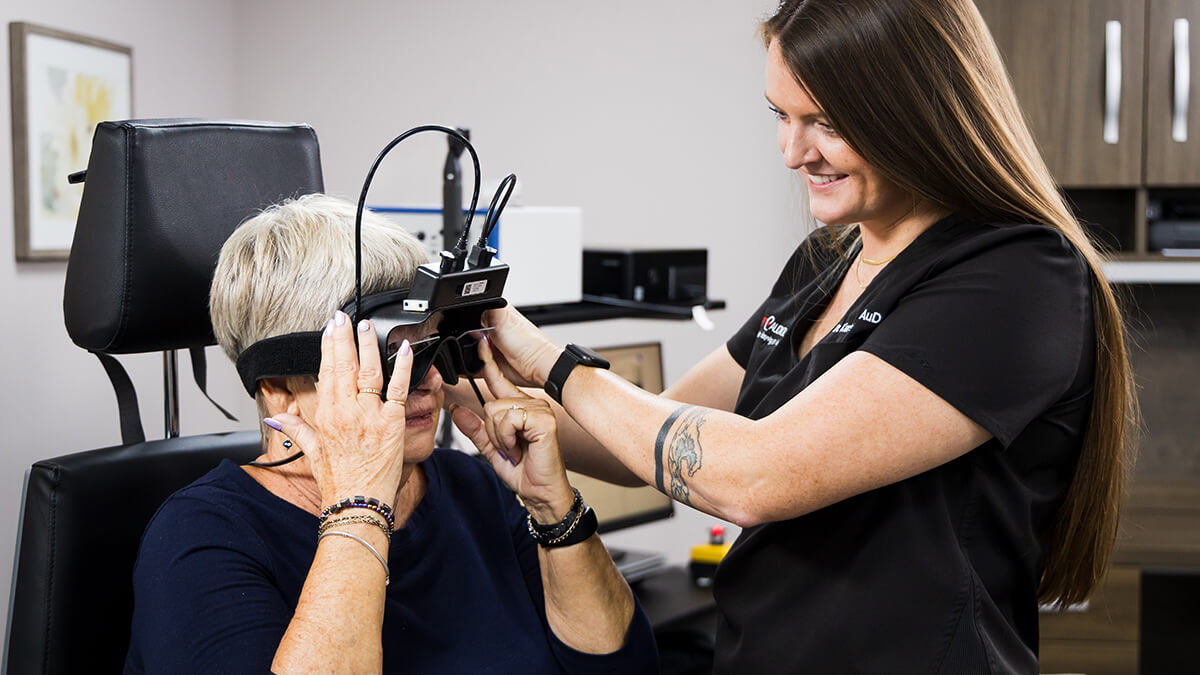Vestibular & Balance Testing

We understand the crucial role that balance plays in your everyday life. Whether you're strolling through a park, climbing stairs, or simply getting out of bed, balance is what keeps you steady and confident.
Balance issues can have a significant impact on your quality of life. That's why we're here to offer expert vestibular and balance testing to provide you with the support and solutions you need.
Understanding Vestibular & Balance Disorders
Types of Balance Disorders
Balance disorders are a large category of disorders, and vestibular issues can take many forms.
Benign Paroxysmal Positional Vertigo (BPPV), is a common inner ear disorder that causes sudden, intense bouts of vertigo triggered by specific head movements. It occurs when tiny calcium particles in the inner ear become dislodged, affecting your sense of balance and causing a spinning sensation.
Ménière's disease can also lead to balance issues. It’s a chronic condition of the inner ear that can lead to recurrent vertigo, fluctuating hearing loss, tinnitus (ringing in the ears), and a feeling of fullness or pressure in the affected ear. These symptoms often occur in episodes and can be debilitating.
Vestibular neuronitis, also known as vestibular neuritis, is typically caused by a viral infection affecting the vestibular nerve in the inner ear. This condition results in severe vertigo, accompanied by dizziness, nausea, and difficulty maintaining balance. It can be a sudden and unsettling experience.

Symptoms of Balance Disorders
The Impact of Balance Disorders

Individuals with untreated hearing loss may withdraw from social activities and gatherings, resulting in isolation and feelings of loneliness. Hearing loss can often lead to feelings of depression, anxiety, and reduced self-esteem, as individuals struggle with the emotional toll of their condition.
Hearing loss can also impact your job performance. Hearing loss can hinder communication with colleagues and clients, and impact career advancement. Some studies also suggest a link between untreated hearing loss and cognitive decline, including an increased risk of conditions like dementia.
Comprehensive Vestibular and Balance Testing
At Adept Audiology, our comprehensive vestibular and balance testing services are designed to address these challenges head-on.
Take the First Step Toward Balance
Reach out today!

